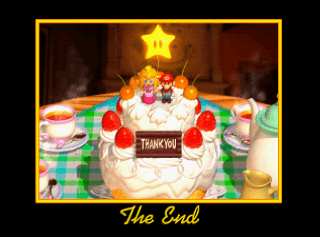Before I took this class, I thought a lot about game design. I play a lot of video games and watch a lot of content about game design, so I’d thought about a lot of the course topics beforehand. I think what stuck with me the most about this class was getting to talk to people who did not have the same intense interest in games about game design principles. It was nice to get out of my ‘very serious about games’ bubble and be grounded in the reality of people sometimes struggling to pick up mechanics because they didn’t have a lot of experience with the medium.
I think my favorite reading from the class was ‘The Role of Architecture in Video Games’; I had fun reflecting on games I’ve played and identifying a lot of different kinds of level architecture that conform to the principles mentioned in the piece. It’s interesting to actively perceive games as ‘what was the designer trying to convey to me?’ rather than simply trying to get immersed. I realized that, despite being really interested in a lot of games, I didn’t often think about the design reasons for certain set pieces because I was so immersed. When I designed my cake-making level of my group’s Minecraft Prison Break game, I was very intentional about different set pieces I added, keeping this article in mind. I plan to continue playing many different games, so it will be interesting to have this knowledge going forward.
One of my favorite things about reading for this class and exploring topics I’m personally familiar with is all of the memories of fan complaints and memes about some fundamental design issues in games. Maybe criticism of art in general comes with a lot of parody and satire, but for whatever reason, there is tons of interesting and hilarious criticism. I think some of the academics who wrote these articles should try to incorporate some of this parody into their writings; I’ve always found it extremely memorable. When I was writing up my report for project two, I found myself talking about the ‘collect-a-thon’ genre and how there’s a delicate balance between tedium and interesting complexity. I didn’t mention it in the report, but a poignant (and hilarious) satire about tedious collecting mechanics in games I thought of is a fan-made flash game called The Legend of Zelda: The Lampshade of No Real Significance. The gameplay involves repeatedly traversing an area trading random chotchkes to NPCs with little explanation, and I think it does a good job of conveying the difficulty in achieving this balance. There was a Critical Play post I wrote about a game I’ve spent a ton of time with – Hearthstone. In discussing the balance considerations about the game, I found myself making multiple allusions to hilarious community memes that exemplified the topics I was discussing.
One topic I’d like to see discussed at least for one lecture in the class is horror stories about how game projects can go wrong – stories of the troubled development or release cycles of games like Duke Nukem Forever and Cyberpunk 2077 are both fascinating and informative. At the end of the quarter, we had a lecture about problems in modern video games, but I noticed the current trends of predatory microtransactions and releasing broken and buggy games and then patching them after release were not discussed. It would have been interesting to have these topics covered as well. It also would have been extremely interesting to discuss the game design constraints of VR and how they might spawn new genres of games.
One of the things I struggled with in the class is the scope of my projects; I realized I wanted to add more features and content but didn’t have the time to dedicate to it. I hope that in the future I can leverage my programming skills to make an interesting game, but it would require a lot of free time.
It felt validating to study the topic of game design as I’ve been interested in it for a long time. When giving feedback after playtesting other people’s games, I found I was overflowing with feedback and ideas for design tweaks. Hopefully I can find a way (other than simply playing more games) to spend time on this part of my identity; I enjoyed it a lot.
I’m planning to architect and run a Dungeons & Dragons campaign for a group of friends next year. I hope I can use it as an outlet for this pent-up creativity I’ve discovered with this class and make something truly special with the lesson I’ve learned about narrative arcs, environments, puzzles, and other things.
In conclusion, this class somehow managed to increase my already-intense interest in game design. I hope that my love of games continues to infuse my life with meaning and happiness for years to come.



